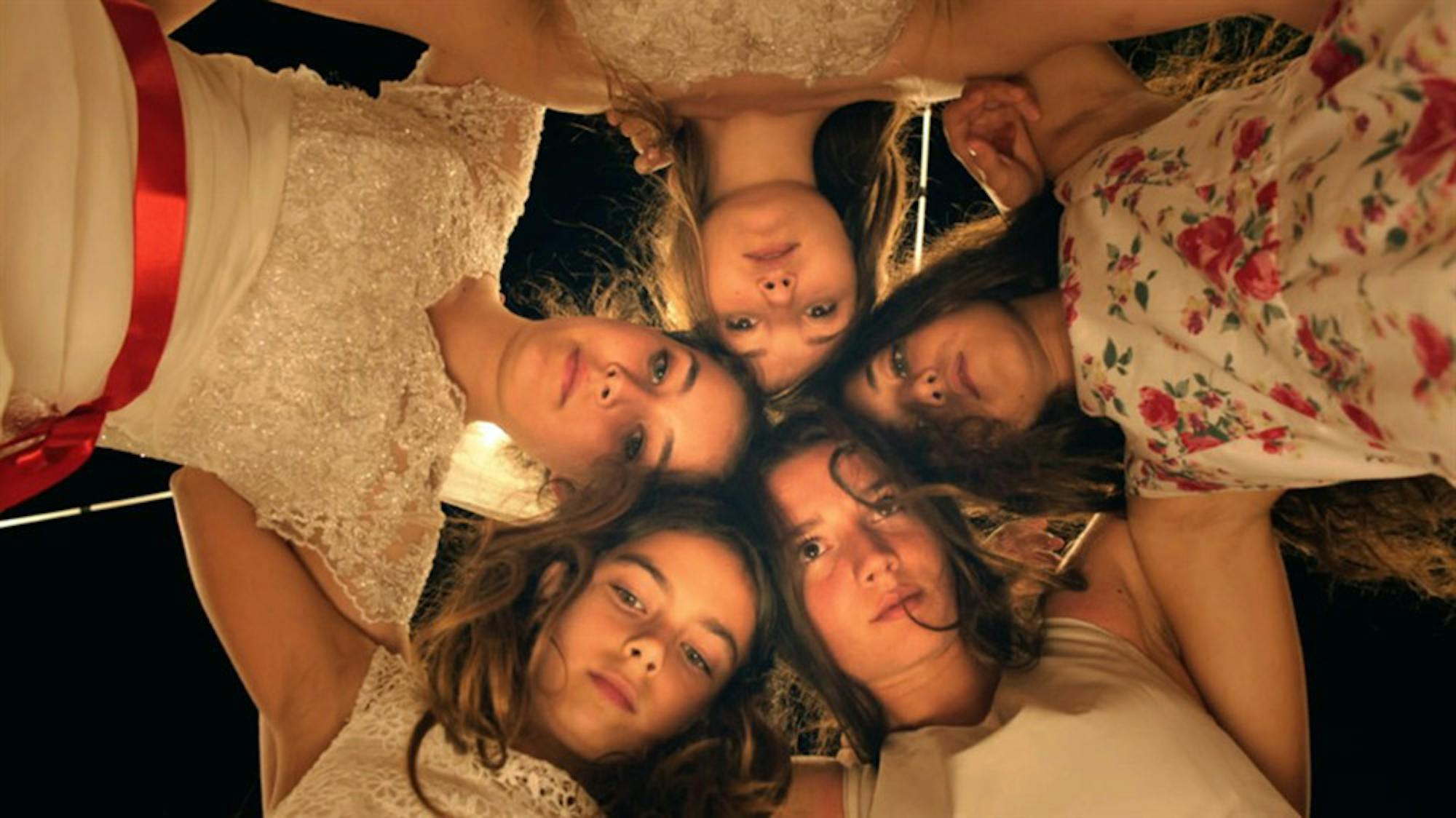The official submission from France for the Academy Award is "Mustang" (2015), a debut movie by Director Deniz Gamze Özgüven. While representing France in the competition, the film itself is set in Northern Turkey and is in Turkish. An ambitious film that tackles conservatism, sisterhood and gender inequality, "Mustang" has received accolades from critics and viewers alike over the past few months, especially in Europe and the United States. That said, the reaction in Turkey has mostly been unfavorable, as many have criticized the film for misrepresenting the country with an orientalist perspective. While Turkish critics certainly offer a valid point, misrepresentation isn’t the only problem in "Mustang." The movie is too focused on driving its point home that it is unashamedly unrealistic. Because of this, the final product feels more insincere than convincing.
"Mustang" follows the lives of five sisters living in a coastal village near the Black Sea. The girls' parents are deceased so their conservative grandmother and uncle raise them. In the beginning of the movie, the girls are under no restrictions; they are allowed to wear mini shorts and tank tops, and they see no trouble flirting with boys. Yet, when their behavior draws attention in the village, their grandmother and uncle decide to take action. They are first sent to the hospital to get “virginity reports” so that their purity can be proven. Then, new rules are set; the girls are not allowed to leave the house, their phones and computers are taken away and they are forced to wear conservative dresses. These changes happen over the course of 10 minutes, leaving the viewer very puzzled, as it is rather difficult to grasp the rapid change from freedom to quasi-imprisonment.
Things get progressively worse throughout the movie. The elder sisters are forced into marriage, and the younger ones aren’t allowed to go to school. There are also hints of sexual assault. All of the sisters deal with their situations differently. Selma (Tuğba Sunguroğlu), whose life comes under threat after she is not able to prove she is virgin before her wedding, is completely numb. Lale (Güneş Şensoy), the youngest of the girls, is clearly angry. At this point, it is impossible not to feel sympathy for the sisters.
There is a line between painfully tragic and flat-out absurd, and the movie passes that line somewhere near its end. While final scenes definitely set viewers' hearts racing, they are also irrational. Özgüven decides to end the movie on an optimistic note, yet her decision further spoils the authenticity of the plot. The film's intentions are good; however, it attempts to bash conservatism and touch upon important topics such as sexism, honor, child marriages and sexual violence. The overall plot line is reminiscent of Sofia Coppola’s adaptation of "The Virgin Suicides" (2000), yet it is not as refined.
Nonetheless, there are some aspects of the movie worth praising. Özgüven perfectly captures the nature of sisterhood in the movie. Despite the unnatural plot line, the relationships between the sisters seem very believable, partly due to the poignant performances of the siblings. Özgüven also successfully conveys adolescent sexuality on the silver screen. The visuals are also striking, especially the coastal shots of the village.
Overall, with an unconvincing plot overshadowing the movie's broader message, "Mustang" is an ambitious effort that fails to deliver. "Mustang" is at its best when it features the dynamics between the sisters, and that is what the movie should have been focusing on.
Despite impressive performances, 'Mustang' is hampered by plot

Tugba Sunguroglu, Ilayda Akdogan, Doga Zeynep Doguslu, Elit Iscan and Gunes Sensoy in "Mustang."
Summary
Settler performances and a sharp insight into sisterhood fail to elevate "Mustang" above an unconvincing plot.
2.5 Stars





